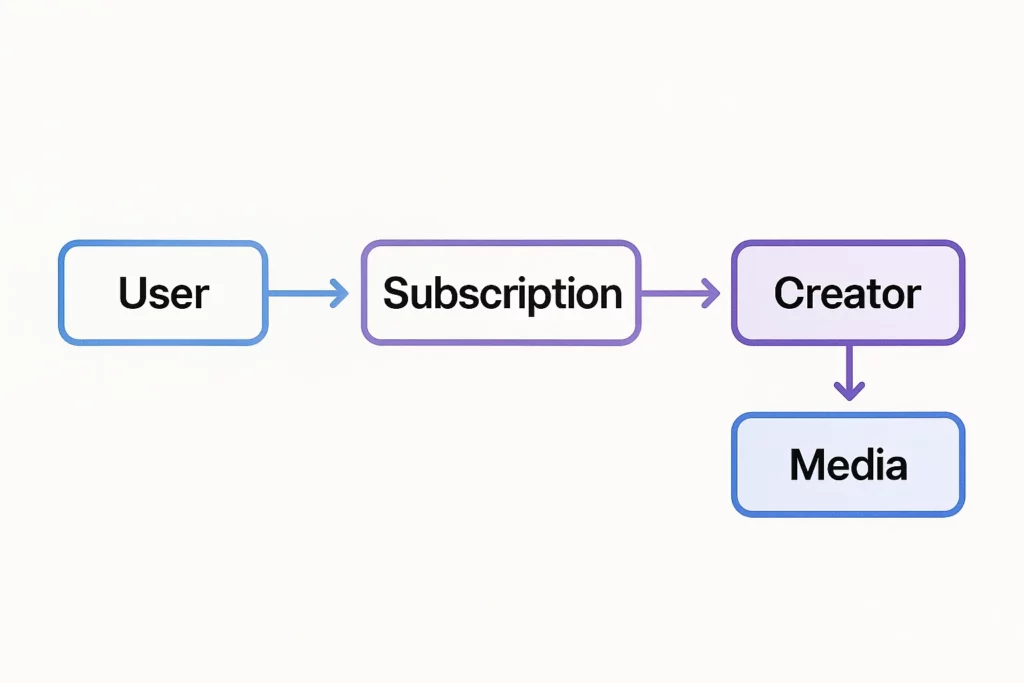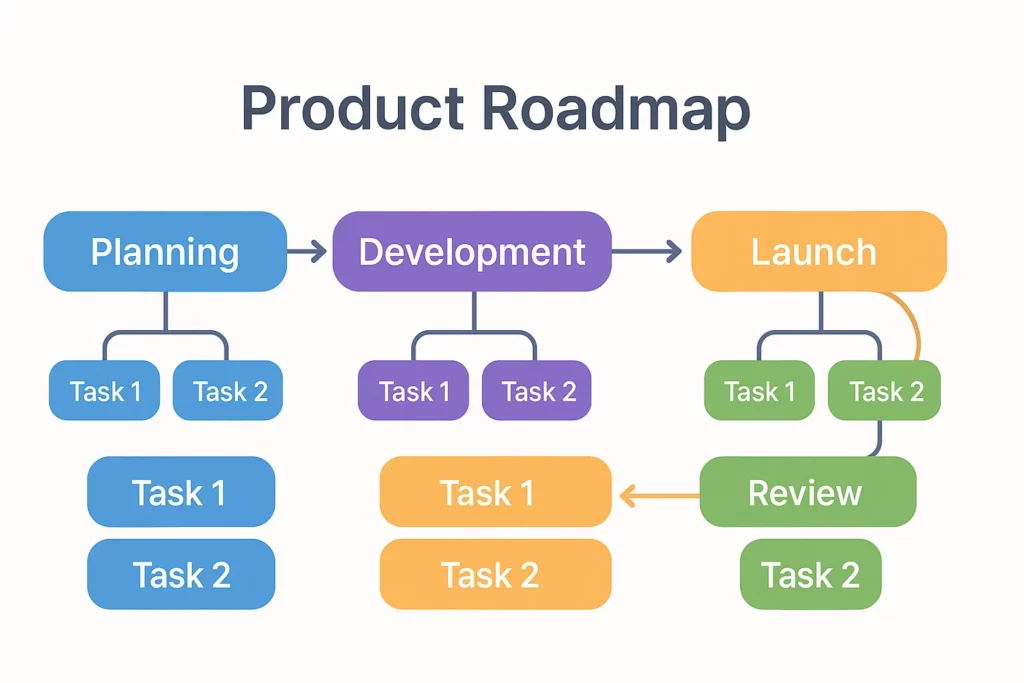You’ve seen it. That “one creator just made $50k in a month” tweet that makes every startup founder sit up straighter. Platforms like Fansly and OnlyFans have cracked open the vault of creator monetization — and the gold rush is on. Naturally, you want in. But building a Fansly clone isn’t just copy-paste and pray. It’s a complex cocktail of tech, psychology, compliance, and growth hacking.
Here’s the thing most starry-eyed founders don’t realize: the success of a platform like Fansly didn’t come overnight or without some faceplants. Building a creator subscription platform means dancing with everything from high-risk payment processors to influencer demands and — oh boy — content moderation nightmares.
Before you jump into development mode, let’s talk about the five mistakes that can sink your creator platform before it even leaves port. And if you’re serious about launching a smarter, smoother clone? That’s where Miracuves comes in.
Mistake #1: Treating It Like Just Another Social Media App
Social media? Sure, Fansly’s interface might remind you of Instagram meets Patreon. But behind the scenes? It’s a fortress. Subscription-based platforms for creators need scalable video hosting, secure content paywalls, and real-time chat or messaging systems. You’re not building a meme app here — you’re creating an infrastructure for micro-entrepreneurs.
Treat it like an e-commerce site for content. Every creator is a seller. Every fan is a buyer. That means frictionless UX, robust uptime, and failproof payment logic.

Mistake #2: Ignoring Payment Gateways and Compliance
Let’s rip off the band-aid — platforms with adult content face higher scrutiny. Stripe? Probably not gonna play nice. PayPal? Forget it. You need to work with high-risk payment processors like CCBill or Segpay — and that means KYC, AML, and airtight terms of service.
Worse, many founders skip age verification flows, which can turn into legal landmines. Not having content review systems or audit trails? That’s inviting a PR disaster.
Real-World Example: Multiple creator platforms have been de-platformed or had funds frozen due to poor payment compliance setups.
Read Also :-Best Fansly Clone Scripts in 2025: Features & Pricing Compared
Payment Gateway Comparison Table
| Feature | Mainstream (Stripe, PayPal) | High-Risk (CCBill, Segpay, Verotel) |
|---|---|---|
| Supported Content Types | General e-commerce, SaaS | Adult, gaming, dating, CBD, etc. |
| KYC & Compliance Requirements | Basic | Strict (ID verification, content policies) |
| Chargeback Tolerance | Low (strict penalties) | High (built-in chargeback management) |
| Onboarding Time | Fast (1–3 days) | Slower (7–14 days with review) |
| Recurring Billing Support | Yes | Yes |
| Multi-Currency Support | Limited | Extensive |
| Global Reach | Moderate | High (often better coverage in restricted regions) |
| Processing Fees | 2.9% + $0.30 avg | 4.5–8% + extra risk fee |
| Payout Frequency | Weekly or Monthly | Daily, weekly, or flexible (depending on volume) |
| Fraud & Risk Tools | Basic | Advanced, tailored for adult/content platforms |
| Customer Support | General | Specialized for high-risk industries |
Mistake #3: Underestimating Creator Experience (CX)
You’re not just attracting users. You’re onboarding creators who expect a dashboard that’s as intuitive as Shopify, as fast as TikTok, and as profitable as Patreon. This is their business — and every lag, bug, or confusing button costs them money.
Key creator features startups often skip:
- Content scheduling
- Payout tracking
- Subscriber analytics
- DM monetization (paid messages)
If you’re not optimizing for creator retention, your platform becomes a ghost town faster than you can say “monthly churn.”
Learn More :-Reasons startup choose our fansly clone over custom development
Mistake #4: Forgetting Brand Positioning & Trust
You can’t just copy the name, splash in some pastel colors, and call it a day. Fansly worked because it built a creator-first brand, stood in solidarity with adult content creators when others bailed, and made trust its selling point.
New startups often ignore tone, community, and communication. That leads to a bland, feature-filled platform with zero soul — and in this space, soul sells.
Emotional Cue: Creators want platforms that champion them, not just use them.
Mistake #5: Weak Security and Content Control
This isn’t optional — it’s survival. Without end-to-end encryption, media watermarking, anti-screenshot tech, and DMCA request handling, you’re risking leaks, piracy, and lawsuits.
The irony? Many clones go live without even two-factor authentication for creators. Not cool.
Must-haves:
- Role-based access
- Secure CDN with link expiration
- AI-powered content moderation
Building It Right with Miracuves
You don’t get a second chance at a first launch — and in the creator economy, word travels fast. At Miracuves, we’ve helped dozens of startups build Fansly-style platforms that are privacy-conscious, creator-friendly, and monetization-ready.
From UI/UX to backend logic, we don’t just build — we battle-test.

Read More :-Pre-launch vs Post-launch Marketing for Fansly Clone Startups
Conclusion
Building a Fansly clone isn’t rocket science — but it’s also not a weekend hackathon project. The creator economy rewards platforms that think long-term, solve real pain points, and treat both users and creators like royalty.
Skip the shortcuts. Invest in clarity, compliance, and community.
At Miracuves, we help innovators launch high-performance app clones that are fast, scalable, and monetization-ready. Ready to turn your idea into reality? Let’s build together.
FAQs
Is it legal to build a Fansly clone?
Yes, as long as you follow proper content regulations, payment laws, and don’t infringe trademarks or branding.
What tech stack is best for subscription content platforms?
MEAN, MERN, and LAMP stacks are common. You’ll also need real-time frameworks, CDN, and secure APIs.
Can I launch a Fansly clone without adult content?
Absolutely. Many creators use similar platforms for fitness, cooking, music, and education.
How do I attract creators to a new platform?
Offer better payouts, superior support, and exclusive tools. Creator acquisition is your growth engine.
How much does it cost to build a Fansly-like app?
Depends on features and scale, but MVPs can start around $10K. Custom features, security, and scalability add to the cost.
How do I handle payouts to creators?
Use high-risk-friendly payment processors with automated payout scheduling and tax compliance integration.








